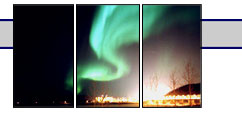| 1. |
A lawyer must not disclose any
confidential information regardless of its source and whether or
not it is a matter of public record. |
|
| 2. |
A lawyer must not disclose the
identity of a client nor the fact of the lawyer's representation. |
|
| 3. |
A lawyer must preserve and keep
confidential property of a client under the lawyer's control. |
|
| 4. |
A lawyer must take reasonable steps
to ensure the maintenance of confidentiality by all persons engaged
or employed by the lawyer. |
|
| 5. |
A lawyer must continue to hold
a client's information in confidence despite conclusion of the matter
or termination of the lawyer/client relationship. |
|
| 6 |
A lawyer who possesses confidential
information of a client or former client: |
|
| |
(a) |
must not use such information for the lawyer's
personal benefit nor the benefit of a firm member or a related person
or affiliated entity of the lawyer; and |
|
| |
(b) |
must not act or continue to act for another
client if the lawyer would have a duty to disclose such information
to that client. |
|
| 7. |
When, in other provisions of this
Code, an ethical obligation of lawyers is stated to be subject to
confidentiality: |
|
| |
(a) |
confidential information of a client must not
be disclosed to any party without the client's consent; |
|
| |
(b) |
a lawyer must seek the client's consent to
disclosure of confidential information to the extent necessary to
permit the lawyer to fulfill the ethical obligation; and |
|
| |
(c) |
in the event that consent is withheld, the
lawyer must withdraw. |
|
| 8. |
The foregoing rules of this chapter are subject to
the following: |
|
| |
(a) |
A lawyer must disclose confidential information to the Law Society
when required to do so by the Law Society; |
|
| |
(b) |
A lawyer must disclose confidential information when required
to do so by law; |
|
| |
(c) |
A lawyer must disclose confidential information when necessary
to prevent a crime likely to result in death or bodily harm, and
may disclose confidential information when necessary to prevent
any other crime; |
|
| |
(d) |
When acting for more than one party in the same matter, a lawyer
must disclose to all such parties any material confidential information
acquired by the lawyer in the course of the representation and relating
to the matter in question; |
|
| |
(e) |
A lawyer may use or disclose confidential information of a client
when expressly or impliedly authorized by the client; |
|
| |
(e.1) |
A lawyer may disclose confidential information to another lawyer
to secure legal or ethical advice about the lawyer’s proposed
conduct; |
|
| |
(f) |
A lawyer may disclose confidential information when reasonably
necessary for the lawyer to properly prosecute an action or defend
a claim or allegation in a dispute with a client. |
|
| 9. |
When confidential information is disclosed by a lawyer
pursuant to Rule #8, the lawyer must disclose the minimum information
required to give effect to Rule #8 and no more. |



